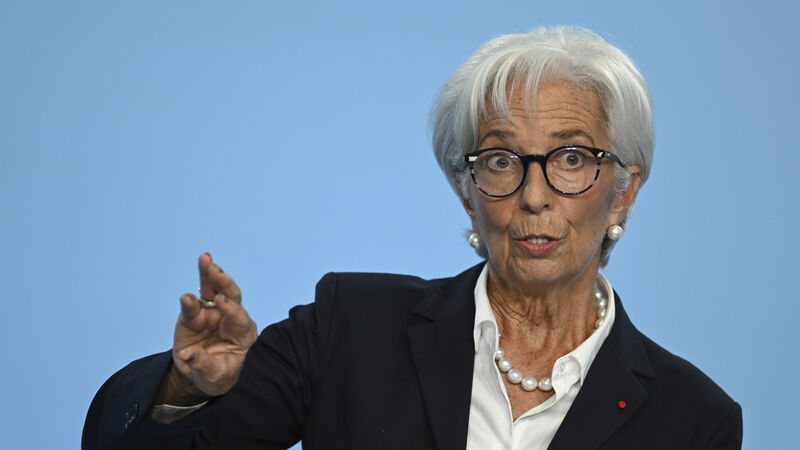Core inflation haunts ECB and European households

Christine Lagarde, president of the European Central Bank: Inflation remains above its target. Picture: Arne Dedert/PA
Eurozone core inflation re-accelerated in June, a setback for the European Central Bank that may reinforce its determination to raise interest rates in July.
The measure of underlying consumer-price gains, which excludes items like fuel and food, came in at 5.4% — just below the median estimate in a survey of economists — as the cost of services picked up markedly.











